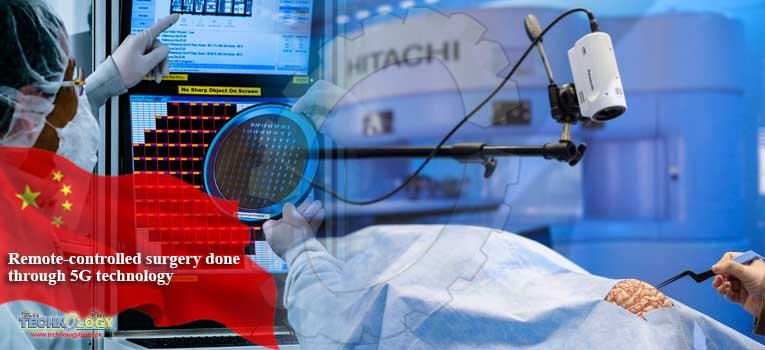Once-futuristic scenes of doctors conducting operations on patients via remote-controlled equipment are becoming a reality in China.

In April, a patient suffering from heart disease in Gaozhou, Guangdong province, was saved through remote surgery that was supported by 5G technology.
During the procedure, which lasted about three hours, a surgeon in a Gaozhou hospital wore a probe that transmitted ultra-high-definition pictures to a display at a top hospital 400 kilometers away in Guangzhou, where experts used 5G livestreaming to give real-time instructions to the surgeon.
In March, a physician in Sanya, Hainan province, manipulated surgical instruments with micron precision on a computer through a 5G network, and successfully placed a deep brain stimulation implant in a Parkinson’s disease patient 3,000 kilometers away in Beijing.
And in December, a Chinese doctor using a 5G network via remote-controlled manipulated a surgical robot 50 kilometers away to successfully remove hepatic lobules from a small pig.
Digital health technology is increasingly part of everyday healthcare for professionals as well as patients in China, according to Future Health Index 2019, a report on digital health by health technology company Royal Philips.
The report concluded that China has leapfrogged other countries in adoption of digital health technology, based on a survey of more than 15,000 individuals and over 3,100 healthcare professionals in 15 countries, including the United States, the United Kingdom, Australia and France.
China significantly outperformed the 15-country average on use of most of the key technologies examined, the report said. Other leaders in digital health include India and Saudi Arabia.
Ninety-four percent of Chinese health professionals reported using digital health technology or mobile health apps, followed by India, with 88 percent, and Saudi Arabia at 85 percent. The average of the 15 countries was 78 percent.
About 81 percent of Chinese in the survey said information they received from digital health technology or mobile apps led them to contact a healthcare professional, compared with the average of 47 percent for all 15 countries.
Chinese also surpassed the 15-country average when it came to tracking key health indicators with digital health technology, such as blood pressure, heart rate, diet, weight and physical activities.